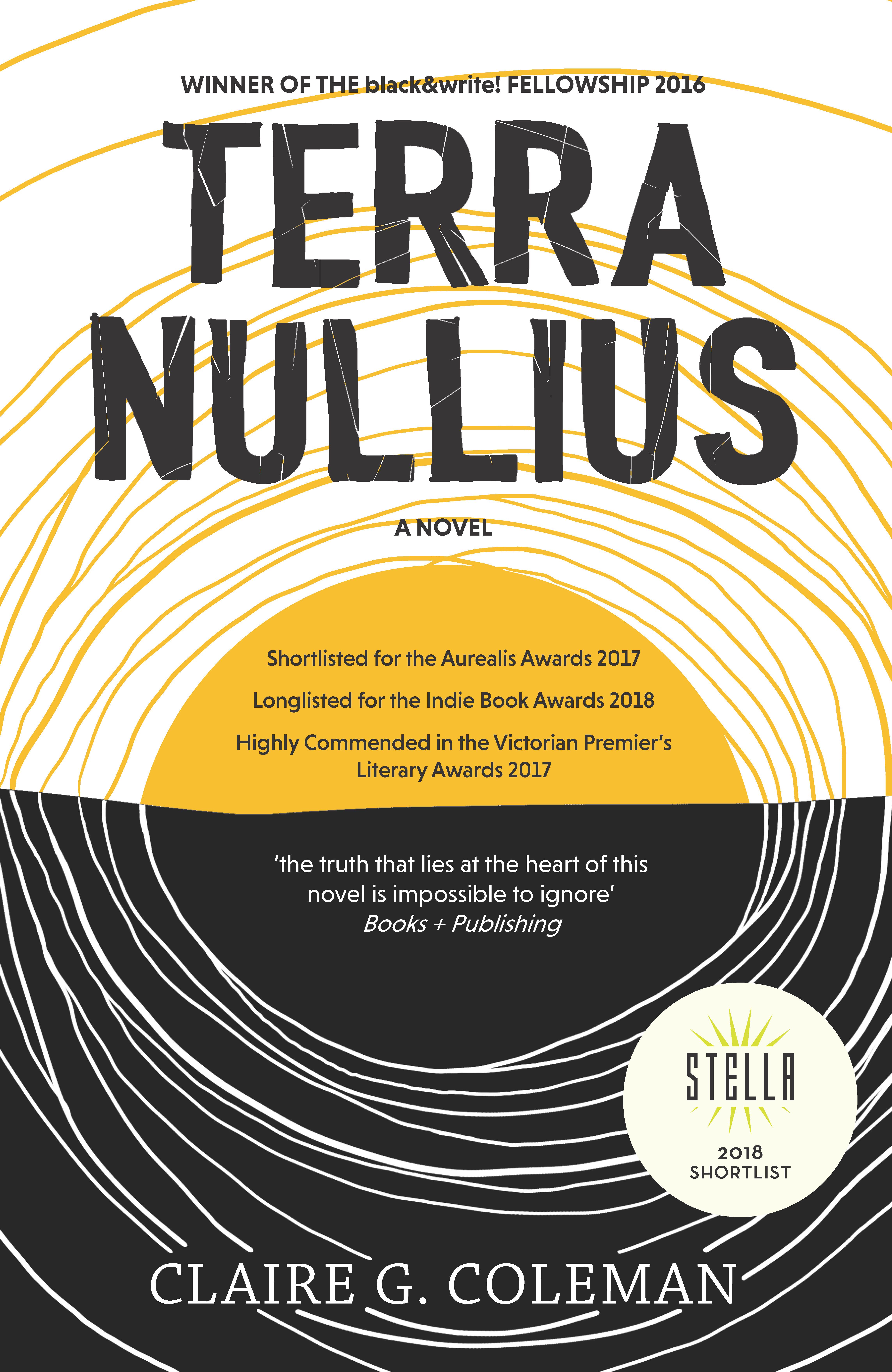Off The Shelf - May
Welcome to my column where each month I’ll take a book from the shelf to share. It’s a review of sorts, but also hopefully a nudge of encouragement, to say go on – there’s a lot great reading out there!
By Kate Rendell
 With the upcoming NT Writers’ Festival in mind, I’ve chosen a book that corresponds with the festival. One visiting guest is Claire G. Coleman, a writer from Western Australia who identifies with the South Coast Noongar people. Coleman’s debut novel is Terra Nullius, the winner of the black&write! fellowship and currently shortlisted for the Stella prize.
With the upcoming NT Writers’ Festival in mind, I’ve chosen a book that corresponds with the festival. One visiting guest is Claire G. Coleman, a writer from Western Australia who identifies with the South Coast Noongar people. Coleman’s debut novel is Terra Nullius, the winner of the black&write! fellowship and currently shortlisted for the Stella prize.
Terra Nullius is a radically fascinating work of speculative fiction. It is a novel that has left me thinking about colonial implication and literary craftsmanship.
For much of Terra Nullius you are reading an historical novel. Specifics of place, including details of the missions, stolen children, domestic slavery, ‘Native troopers’ and the ‘Devil’ character – who can only be A.O. Neville, the notorious WA ‘Protector’ – leads you to believe this is colonial Australia. But as the narrative progresses you realise the setting is not a past but future apocalypse.
Subverting the assumptions one makes as reader – like many, I read Aboriginality into the first-person perspective within this tale of oppression, despite this never being identified – Coleman reveals non-Indigenous Australians as among the oppressed.
Both dystopian and historical therefore, Terra Nullius is an ambitious project and an impressive structural achievement. Particularly notable is Coleman’s fictionalised archive that not once feels false or overworked.
Being tripped up and flipped around is a tricky thing for a reader to experience however, and I found the narrative pace of the second half harder to engage. I was also left wondering what imagining a second invasion achieves for non-Indigenous readers? How do we read ourselves, the real Settlers, as potential victims without diminishing our accountability and responsibility for the historical events of colonisation?
But then there are moments of such revelation and intense clarity – where the strength of the metaphor eclipses the realm of science fiction to shed profound light on Aboriginal experience. The connections established by this inverted perspective are as disturbing as they are profound.
The realisation of massacre at the conclusion of the novel is truly affecting. Having positioned the reader with the ‘Natives’, Coleman offers no peaceful conclusion, no saviour or reconciliation.
The Settlers are a colonising force – they are unjust, unforgiving and ultimately successful. The truth that lies at the core of this conclusion is a necessary and urgent reminder of Australia’s colonial legacy.
 Kate Rendell works as a Communications Manager in the arts. She is also a freelance writer and researcher. First and foremost though she is a reader.
Kate Rendell works as a Communications Manager in the arts. She is also a freelance writer and researcher. First and foremost though she is a reader.
